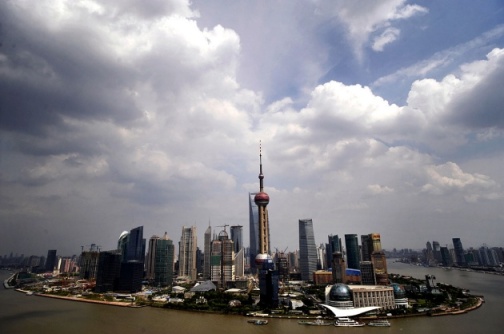One year in, it seemed obvious what would define this decade. After 9/11, everyone could see that we were living in the age of terror. Presidents and senators(参议员) talked about it, the media covered its every twist and turn, from bombings in Bali(巴里岛) to terror camps in Pakistan. And yet, as the decade comes to a close, it is clear to me that the big story is actually something quite different, something less crisis-ridden, less television-friendly but in the long run far more consequential—the rise of China.
First, the case against terrorism as a defining idea. A few years into the decade, the age of terror began fizzling out. Once the combined power and attention of governments worldwide were focused on them, terrorist groups found it much harder to operate. They were chased around the globe by special forces, their money tracked, and their recruits scrutinized at every visa entry point. Al Qaeda’s core mission was a jihad against the United States, and its methods were large attacks on symbols of American power—warships, embassies. It has found it very difficult to continue along this path in the new environment. Similar groups and people—all small minorities as well—have picked up the battle, inspired by Al Qaeda more than directed by it. But these local groups can only attack smaller targets in their home countries, often places that are unprotected and will always be unprotected—cafes, railway stations, subways. The problem with these attacks, however, is that they kill locals, turning more and more Muslims against Al Qaeda and its ilk.
Thus the core weakness for Al Qaeda is exposed—it lacks popular appeal. Its message does not resonate(产生共鸣) anywhere. It hopes to stun the world by spectacular acts of violence precisely because it cannot do so with its political message or popular support. This lack of appeal always limited Al Qaeda’s global danger—after all, no non-Muslim wants to live under an Islamic caliphate. Now even Muslims were emphatically turned off. How can a movement with no real mass appeal pretend to be the future or scare us into reshaping our societies? Of course, terrorism is a problem. Modern technologies of communication and violence ensure that a small group of people can make a lot of trouble anywhere in the world. They have to be fought and societies have to learn resilience, bouncing back from the next attack. But that makes terrorism a condition of today’s world, not a dominant story of tomorrow.
The real trend of the decade has been the rise of China from a Third World nation to the second-most-important country on the planet. In 1990, China was under a cloud. It was still very much a Third World country, with average income at less than a dollar a day. Most of its reforms were about a decade old, progress was real but still slow, and the high drama of the brutal suppression of Tiananmen Square had caused the leadership in China to stop all new reformist policies and caused the world to put better relations with China on hold. China was in a freeze.
The thaw came, as Zachary Karabell points out in his new book, Superfusion, when Deng Xiaoping toured China a few months after the crackdown(压迫,镇压). He announced that economic reforms would continue. China would continue its embrace of modernity, the West, trade, and technology. Politics would be placed on hold but not the economic development of the country. “One does not stop eating for fear of choking,” Deng said, using one of his trademark epigrams to explain the future.
The rest is history. China grew over the decade around 10 percent a year. Compounded, this has grown its GDP to $4.8 trillion, which will make it the second-largest economy by next year. The scale of China’s achievement, which can now be viewed over three decades, is extraordinary by any standard. It has industrialized at roughly three times the pace that the West did. What took 100 years in Europe has taken one generation in China. And in handling this massive transformation, what is really striking is the absence of large-scale violence. It is true that China is a dictatorship, but so were many Western countries when they industrialized, and they had much mass violence. Other East Asian countries have made this journey, but none has the size and scale to alter the world.
And China has not just survived the financial crisis but thrived during it. The Chinese economy will grow at 8.5 percent this year, exports have rebounded to where they were in early 2008, foreign-exchange reserves have hit an all-time high of $2.3 trillion, and Beijing’s stimulus package has launched the next great phase of infrastructure building in the country. Much of this has been driven by remarkably effective government policies. Before the global economy skidded to a halt, Beijing was running a budget surplus and had been raising interest rates to tamp down excessive growth. Its banks had been reining in consumer spending and excessive credit. So when the crisis hit, the Chinese government could adopt textbook policies to jump-start growth. It could lower interest rates, raise government spending, ease up on credit, and encourage consumers to start spending. Having been disciplined during the fat years, Beijing could now ease up during the lean ones. It’s fair to say that the winner of the global economic crisis is Beijing.
The net effect (净效应, 有效效应, 实际结果)is that we have the rise onto the world stage of a new great power and one with massive potential for further growth along all dimensions. Of course, nothing can be taken for granted. China does have a restless middle class, persecuted minorities, border disputes, and the challenge of moving up the economic ladder, all within the context of a one-party system. Perhaps these troubles will make the country spiral downwards. I doubt it, but were it to happen, China’s unraveling would be the dominant story of the next decade.


